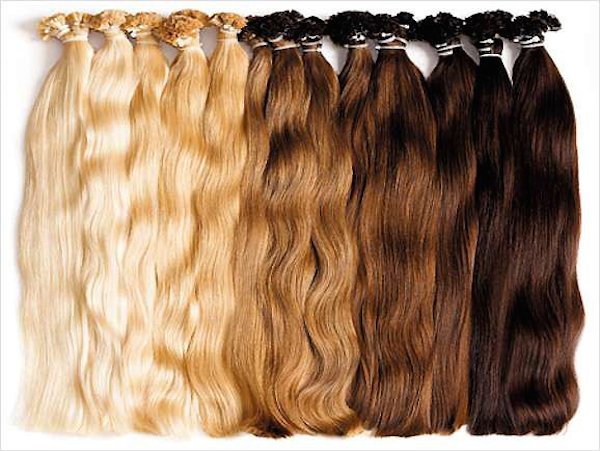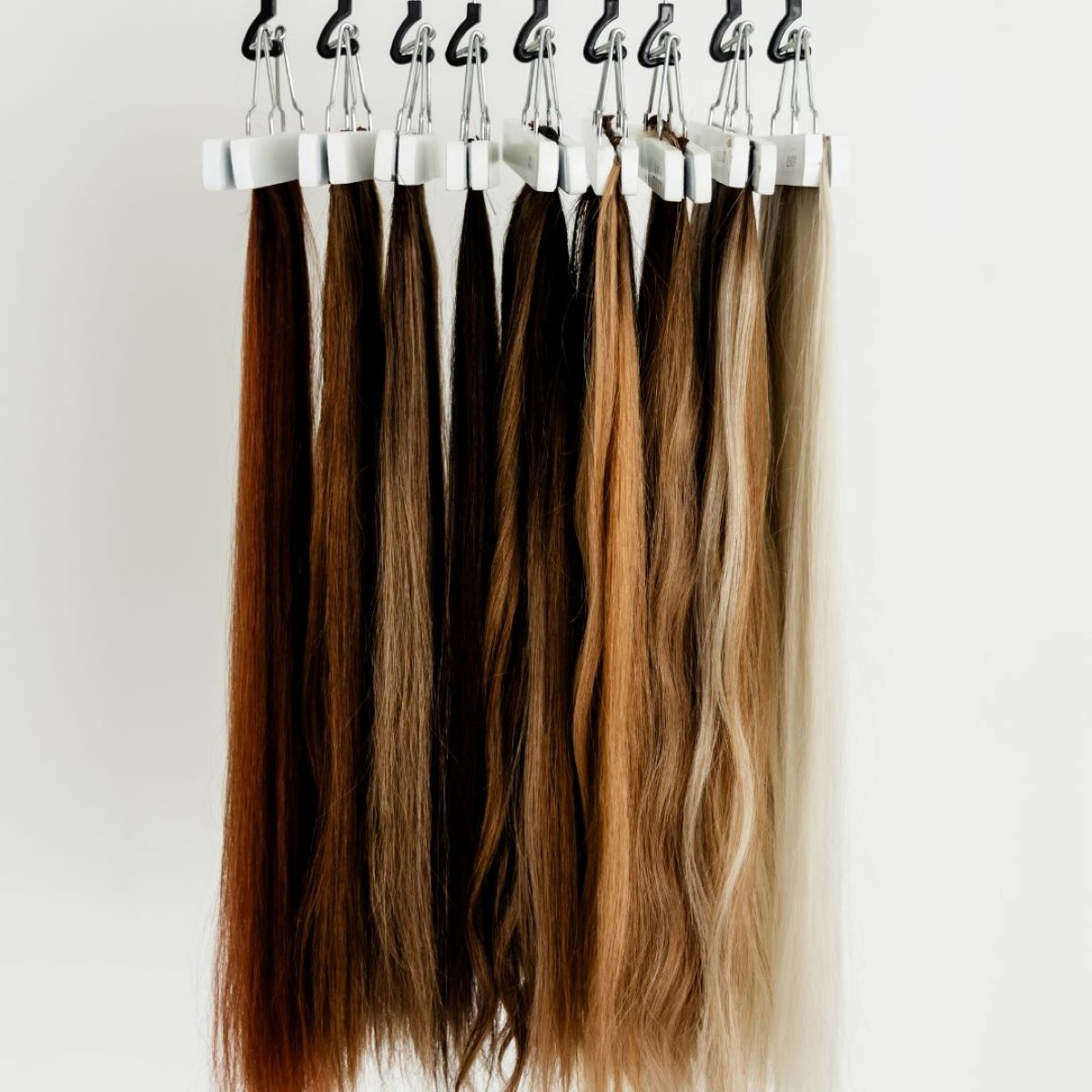Elevate Your Brand with Sustainable Luxury Hair Extension Packaging
Learn More About Luxury Hair Extension Packaging. Because they are made of recycled paper and cardboard, these elegant luxury hair extension boxes are an ecologically friendly option for hair extensions. Custom box designs are mostly used to customize the appearance of your product packaging.
Every day, more salon owners like us find ourselves caught between the desire to provide luxury experiences and the responsibility of choosing environmentally friendly options. It’s challenging balancing these two important aspects of our businesses. However, with sustainable packaging for luxury hair extensions1, we don’t have to choose. By integrating eco-friendly packaging into our offerings, we can make significant strides toward supporting our values and connecting with our eco-conscious clientele.
Are Hair Extensions Recyclable?
Dive Deeper into Hair Extensions' Life Cycle
When pondering whether hair extensions are recyclable, one must consider both the material they are made from and the production process. Generally, the majority of hair extensions are not recyclable due to synthetic materials or chemical treatments applied to natural hair to enhance durability and style. This is something I’ve grappled with personally in my business, Plucharm Hair. However, there is a silver lining as companies begin to explore sustainable options, aiming to offer extensions made of materials that can eventually be recycled or responsibly disposed of.
Breaking Down the Possibilities
- Natural Hair Extensions: Typically non-recyclable if treated chemically.
- Synthetic Hair Extensions: Often made from non-biodegradable plastics, posing greater environmental challenges.
Comparison Table: Hair Extensions Material
| Extension Type | Recyclability | Environmental Impact |
|---|---|---|
| Natural Untreated Virgin Hair | Low (non-recyclable) | Low (biodegradable) |
| Chemically Treated Hair | Low (non-recyclable) | High |
| Synthetic Extensions | Very Low | High |
Pro Tips:
- Opt for natural, untreated hair extensions to reduce environmental impact, even if they cannot be recycled easily.
- Stay informed about new technologies and materials being developed for more sustainable options, like biodegradable synthetics2.
The key takeaway is to drive demand for more eco-friendly extensions, moving suppliers to adopt cleaner practices.
Are Hair Extensions Biodegradable?
The Environmental Angle
The biodegradability of hair extensions is a conversation that’s critical as we push forward in sustainable beauty. While natural hair extensions3 can decompose considerably faster than synthetic ones, this process is elongated significantly when the hair has undergone substantial chemical treatment. At Plucharm Hair, we are exploring innovations that enhance the biodegradability of extensions without sacrificing quality—a tough nut to crack but an essential goal to pursue.
Key Considerations:
- Natural Virgin Hair: Made of keratin protein and is biodegradable.
- Synthetic Hair: Composed of plastic polymers that resist degradation.
Did you know?
The natural decomposition process of untreated human hair takes approximately two years, significantly less than the hundreds of years necessary to break down polyester-derived synthetic fibers.
Which Extensions Are Reusable?
Emphasizing Sustainability and Longevity
In the pursuit of a more sustainable business model, focusing on products like reusable hair extensions4 can make all the difference. Many natural hair extensions3 can be reused multiple times if they're properly maintained, though this isn’t often highlighted. In my salon, I've witnessed clients happily reuse extensions several times over long spans, ultimately decreasing waste and maximizing the value of their investment.
Reusability by Extension Type:
- Clip-in Extensions: Easily removable and reusable.
- Tape-in Extensions: Can be re-taped several times if maintained well.
- Weft Hair Extensions: With proper sewing techniques, these can be reused but require more effort.
Comparison Table: Hair Extension Reusability
| Extension Type | Average Reuse Cycle | Maintenance Effort |
|---|---|---|
| Clip-in | High | Low |
| Tape-in | Moderate | Medium |
| Weft | Moderate-High | High |
Expert Insights:
- Partner with specialists who can assist your salon in maintaining and reinstalling extensions to extend their life cycle.
- Educate clients on the proper care of reusable extensions to encourage sustainable practices.
Are Bellami Hair Extensions Ethically Sourced?
Aligning Ethics with Elegance
Ethical sourcing is a linchpin in today’s beauty industry. With consumers becoming increasingly conscientious, ensuring your suppliers adhere to ethical standards is critical. Bellami Hair Extensions, known for their quality, have received praise for some of their ethical sourcing5 practices, although it’s always prudent to verify these claims personally.
Evaluating Ethical Sourcing:
- Traceability: Ability to trace hair back to the source.
- Fair Compensation: Ensuring all workers within the supply chain receive fair wages and work under fair conditions.
Before/After Case Study:
Before: At Plucharm Hair, we initially focused solely on quality without thorough checks on sourcing—an oversight we quickly corrected by implementing stricter sourcing audits.
After: Now, by ensuring every strand is ethically sourced, not only have we enhanced the reputation of our brand but also established trust and transparency with our clients.
Key Takeaway:
- Demand and verify ethical sourcing5 practices from your suppliers.
- Regular updates and audits are essential in maintaining an ethical supply chain.
Conclusion
Incorporating eco-friendly and ethical practices into your salon business is no longer optional; it’s a mandate for those of us who want to lead the beauty industry into a brighter, more sustainable future. By choosing recyclable materials, prioritizing reuse, and ensuring ethical sourcing5, we can create a more responsible luxury experience for our clients. Let’s strive to provide not just beauty, but beauty with a conscience—one extension at a time.
-
Explore how sustainable packaging can enhance your brand's image and appeal to eco-conscious consumers. ↩
-
Discover innovative materials that can reduce environmental impact in the hair extension industry. ↩
-
Learn why natural hair extensions are a more eco-friendly choice and how they impact sustainability. ↩ ↩
-
Find out how reusability can minimize waste and enhance the value of hair extensions. ↩
-
Gain insights into the importance of ethical sourcing and how it affects consumer trust. ↩ ↩ ↩




